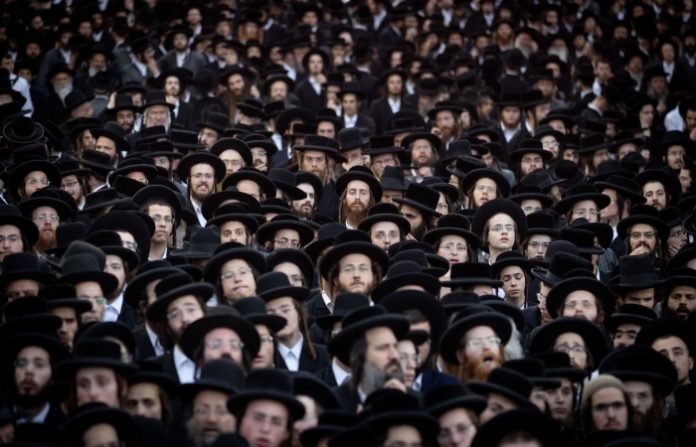In a landmark decision, Israel’s High Court of Justice has ruled that ultra-Orthodox Jewish men, previously exempt under longstanding policies, must now be drafted into military service. This ruling addresses the exemptions granted to those studying in religious seminaries, known as yeshivas, and could have significant implications for Prime Minister Benjamin Netanyahu’s coalition government, which includes ultra-Orthodox political parties.
Orthodox Military Drafting
The court’s decision comes in response to escalating demands for all sectors of Israeli society to contribute to national defense, particularly as the country continues to face threats from organizations such as Hamas and prepares for potential conflicts in Lebanon.
This ruling also includes a directive to halt state funding for yeshivas whose students are exempt from military service.
Historically, from a modest number of 400 exempt students in 1948, the figure has risen dramatically to 63,000 today. In parallel, the ultra-Orthodox population, currently comprising about 13 percent of Israel’s national demographic, is projected to grow to 16 percent by 2030.
In response to the High Court’s ruling, the Israeli government has been tasked with implementing measures to increase the conscription rates of ultra-Orthodox men gradually. Initial steps involve drafting an additional 3,000 men from the community, adding to the approximately 1,000 who currently serve.
The Netzah Yehuda Battalion
The Netzah Yehuda battalion, also known as the 97th battalion of the Kfir Brigade, has been a unique fixture in the Israeli Defense Forces (IDF) since its establishment in 1999. This unit was specifically created to enable the integration of ultra-Orthodox Jew volunteers. This inclusion was aimed at accommodating the distinct lifestyle and religious practices of the ultra-Orthodox community, including no interaction with women, kosher food, and daily religious teachings. Netzah Yehuda is the only non-mixed gender unit in the Israeli military.
Over the years, while it has opened up to non-Orthodox soldiers, the unit has remained an essential bridge between the ultra-Orthodox community and the Israeli military.
While the exact number of active soldiers in the battalion can vary depending on the time and the specific needs of the IDF, it is typically composed of 1,000 soldiers. This small number of volunteers reflects the broader view of the Orthodox Jew Community on this matter.
Protests Against Conscription
In opposition to this reform, protests from the ultra-Orthodox Community have surged, with thousands rallying in Jerusalem. Protestors have expressed vehement opposition to the draft, which they view as a threat to their religious commitments.
These protests escalated into violence when the car carrying Housing Minister Yitzhak Goldknopf, a prominent ultra-Orthodox leader from the United Torah Judaism party, was attacked by protesters. The demonstrators threw stones and physically assaulted the vehicle.
Political Stakes for Netanyahu
The composition of the Israeli government and parliament has long been influenced by the support of ultra-Orthodox parties, which have played a crucial role as kingmakers in Israeli politics.
These parties have traditionally aligned with current Prime Minister Benjamin Netanyahu. In return for their support and the consequent possibility to form a stable government, Netanyahu’s governments have granted exemptions from military service to ultra-Orthodox men, alongside substantial funding for religious institutions.
Currently, the ultra-Orthodox parties United Torah Judaism (UTJ) and Shas account for 16 seats out of 120 members in the Knesset. Netanyahu’s coalition is formed and supported by a coalition that includes Likud, the Religious Zionist Party, Shas, UTJ, Jewish Power, and Noam. Together, these parties hold 64 out of 120 seats in the Knesset, representing 53.3 percent of the total seats.
This dynamic places the ultra-Orthodox parties in a strong bargaining position, allowing them to influence significant policy decisions.
The potential drafting of ultra-Orthodox men into military service poses a significant threat to this arrangement. Should the government enforce these drafts, it could alienate the ultra-Orthodox parties and their supporters, destabilize Netanyahu’s coalition, and raise the potential for calls for the nomination of a new Prime Minister.

